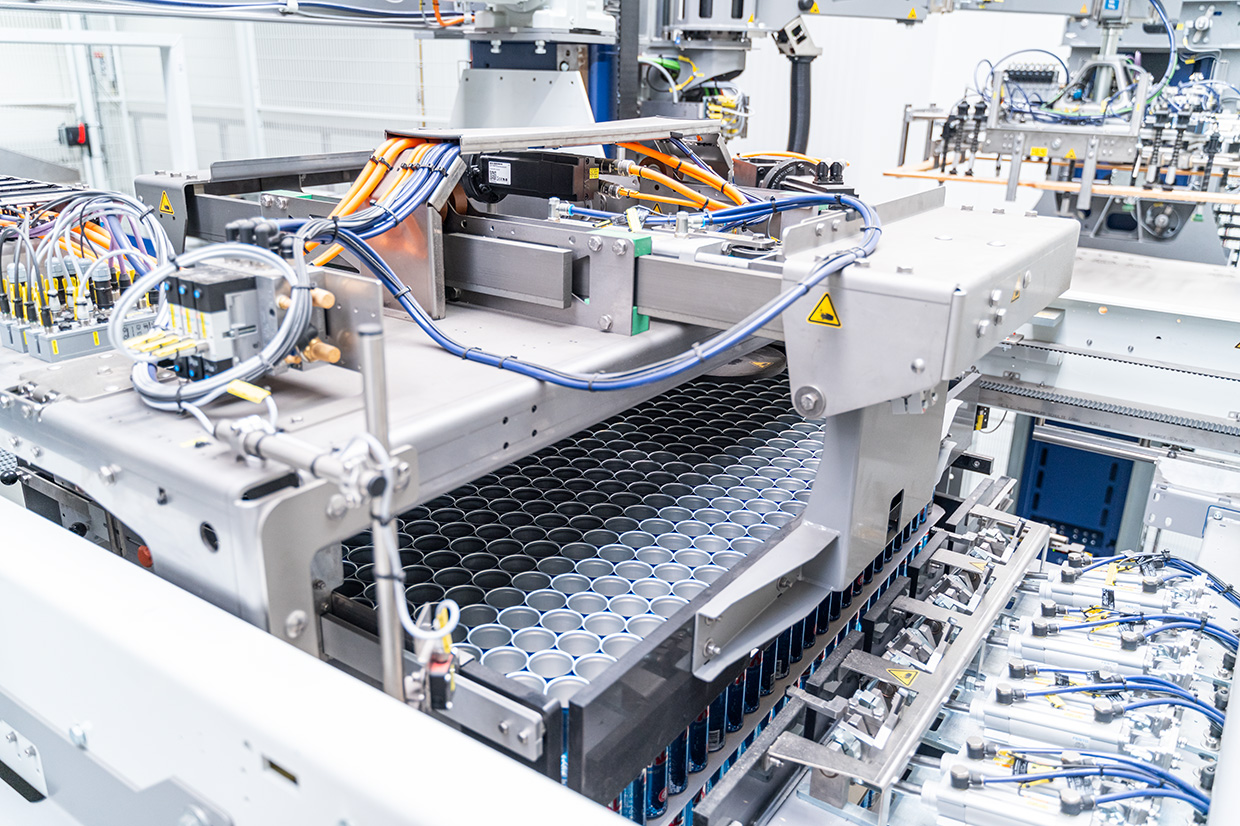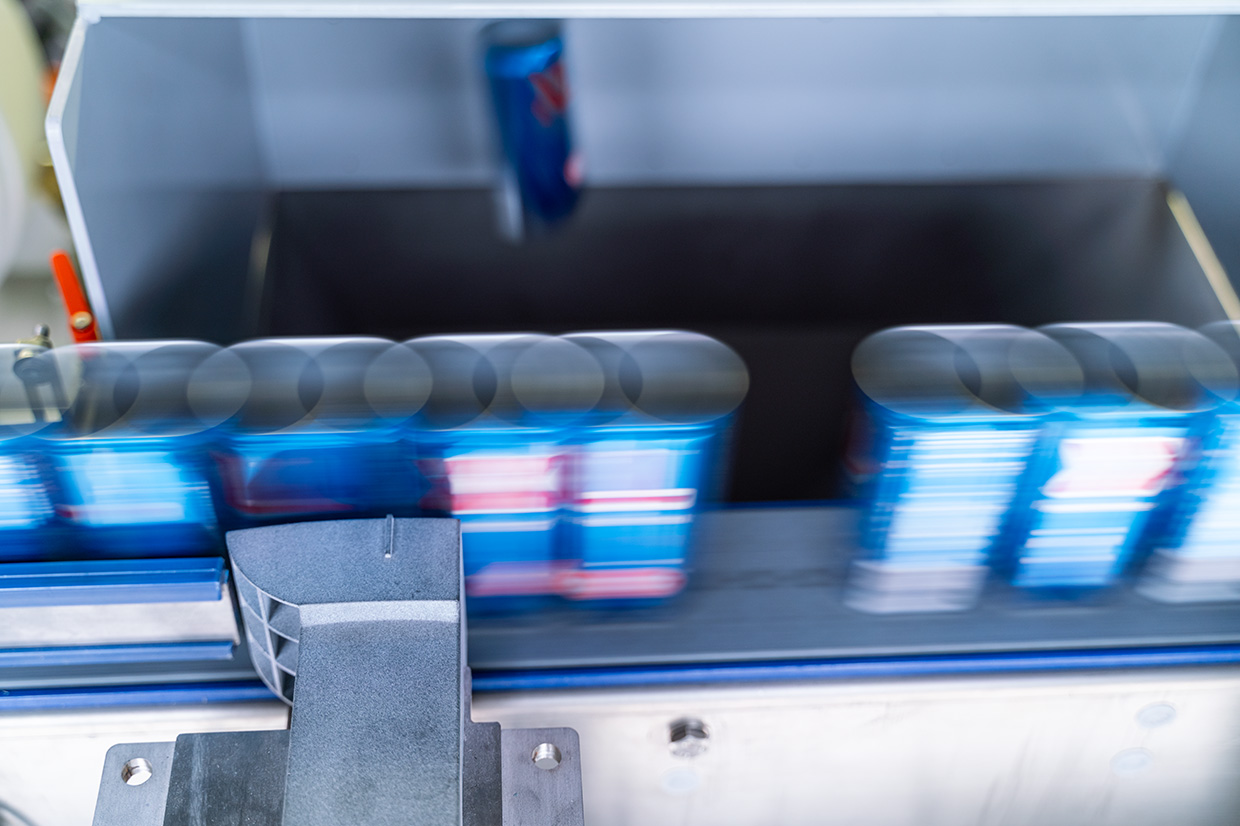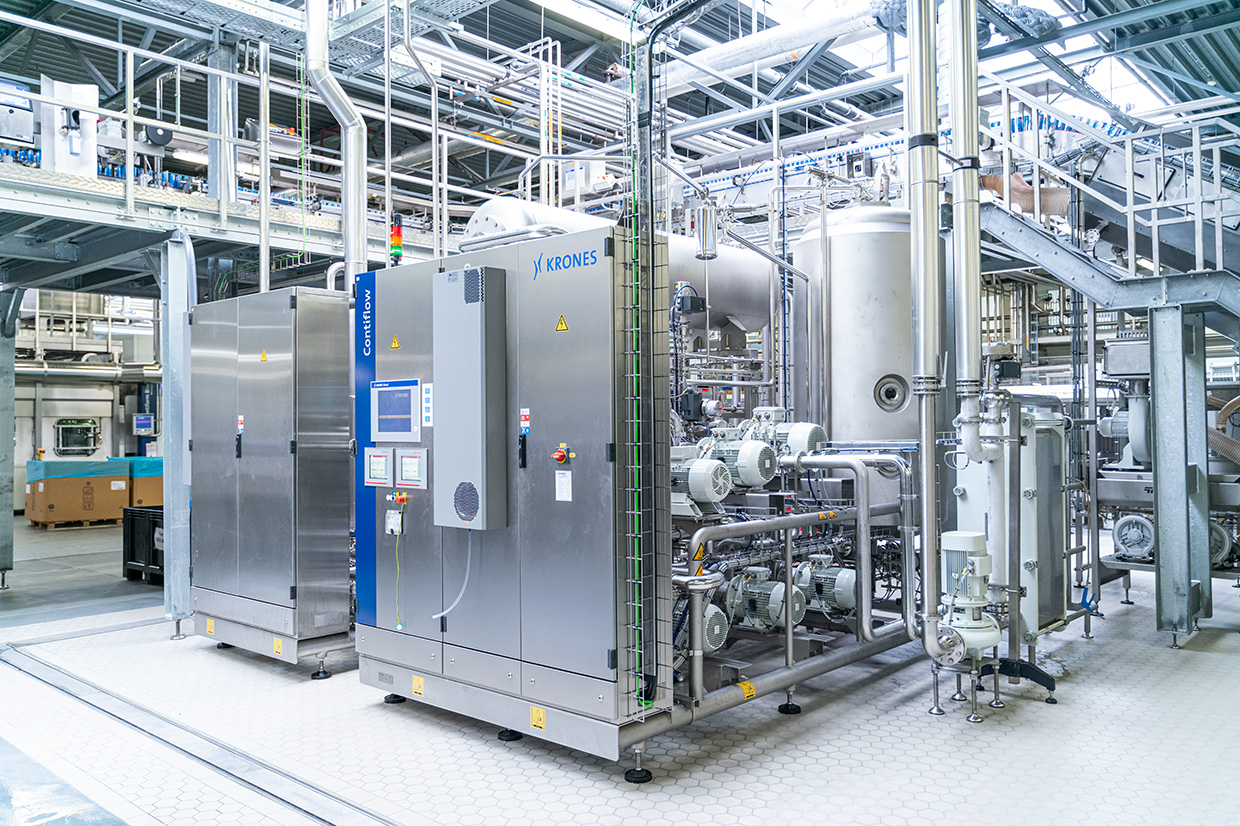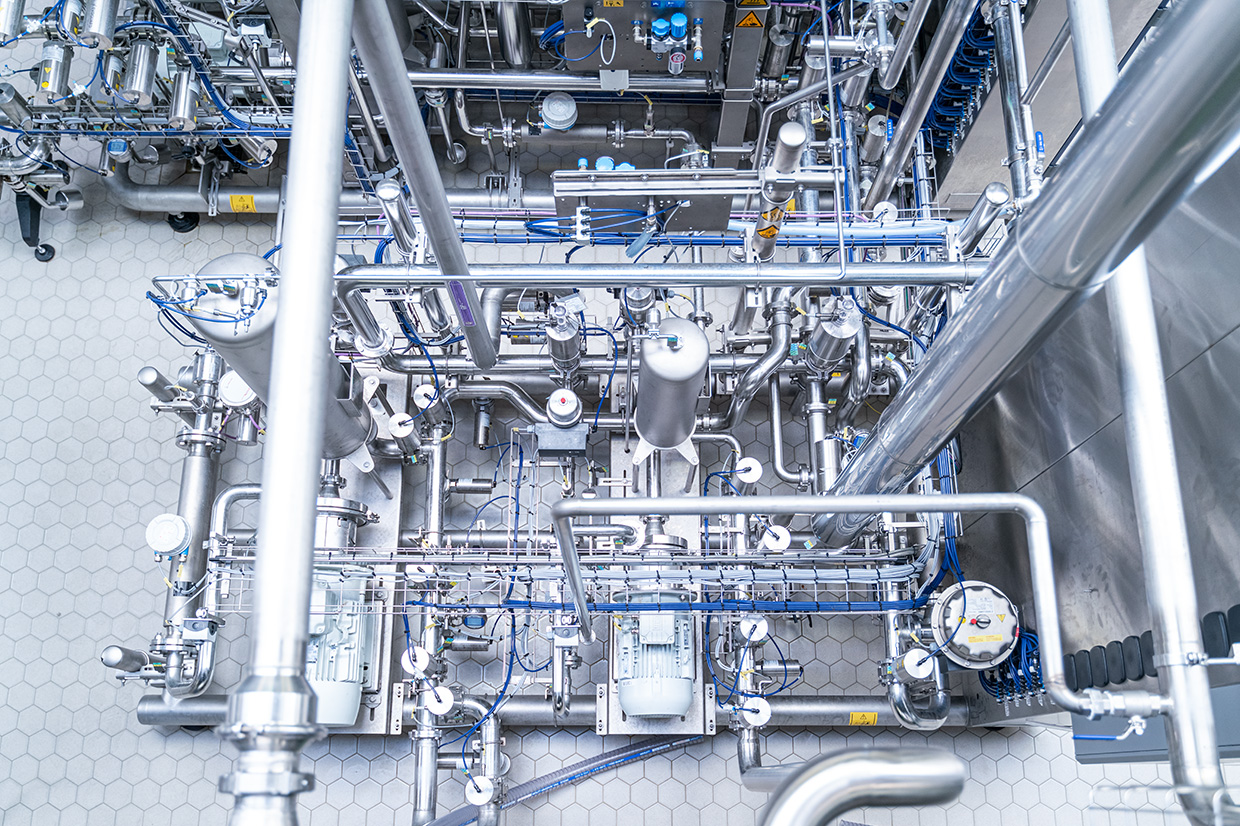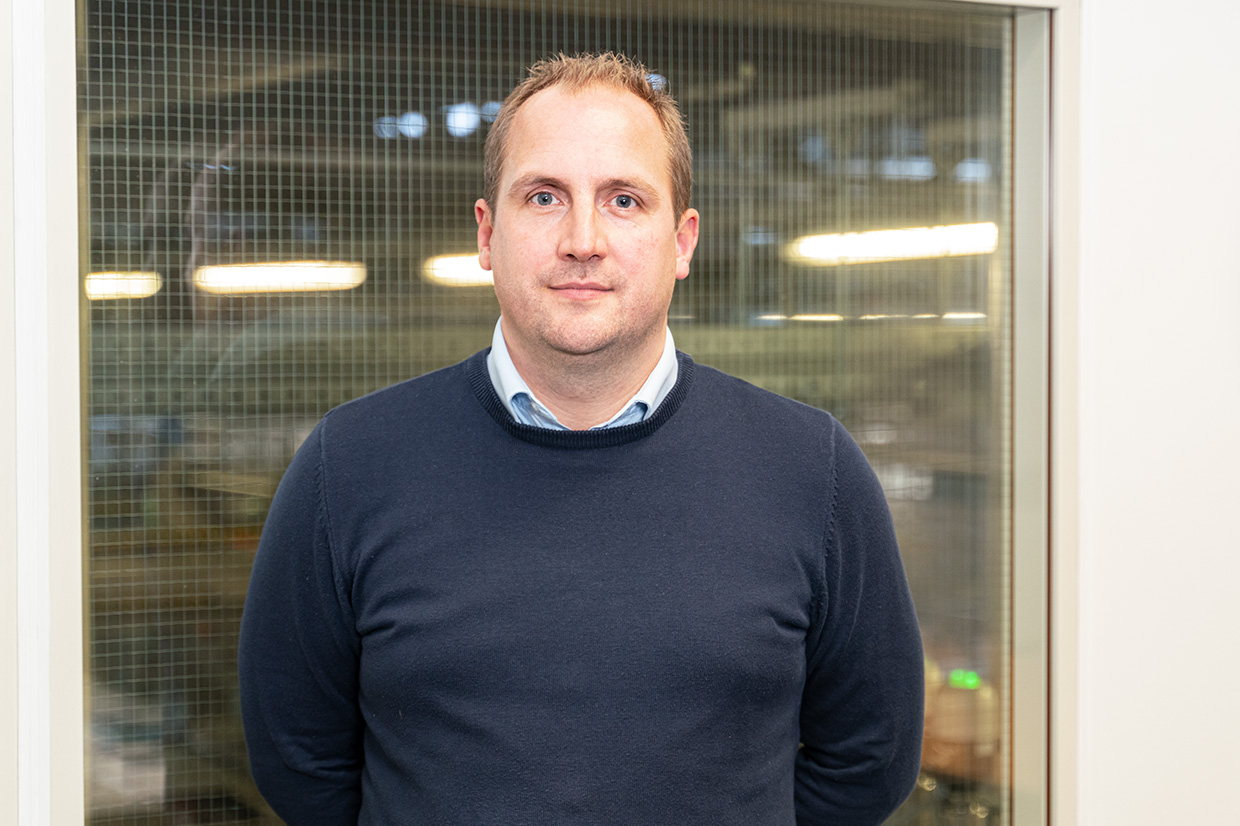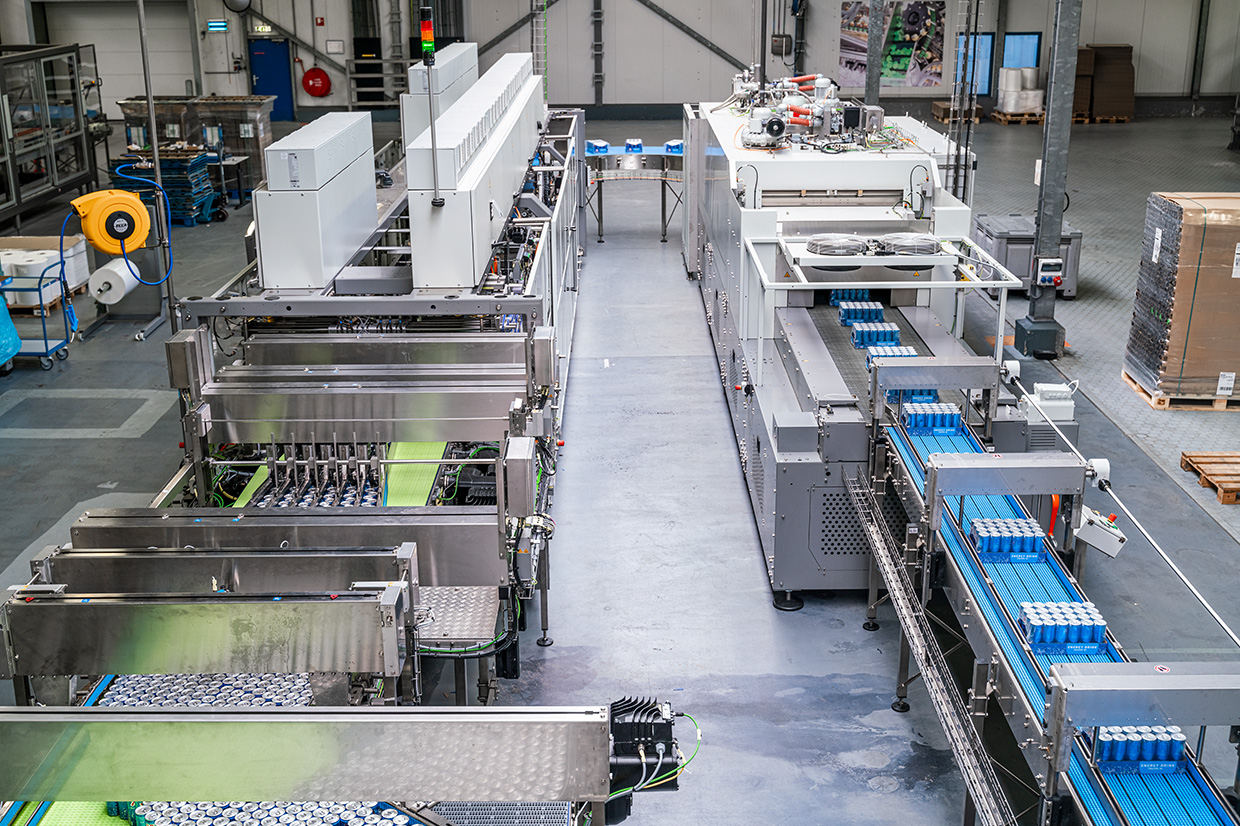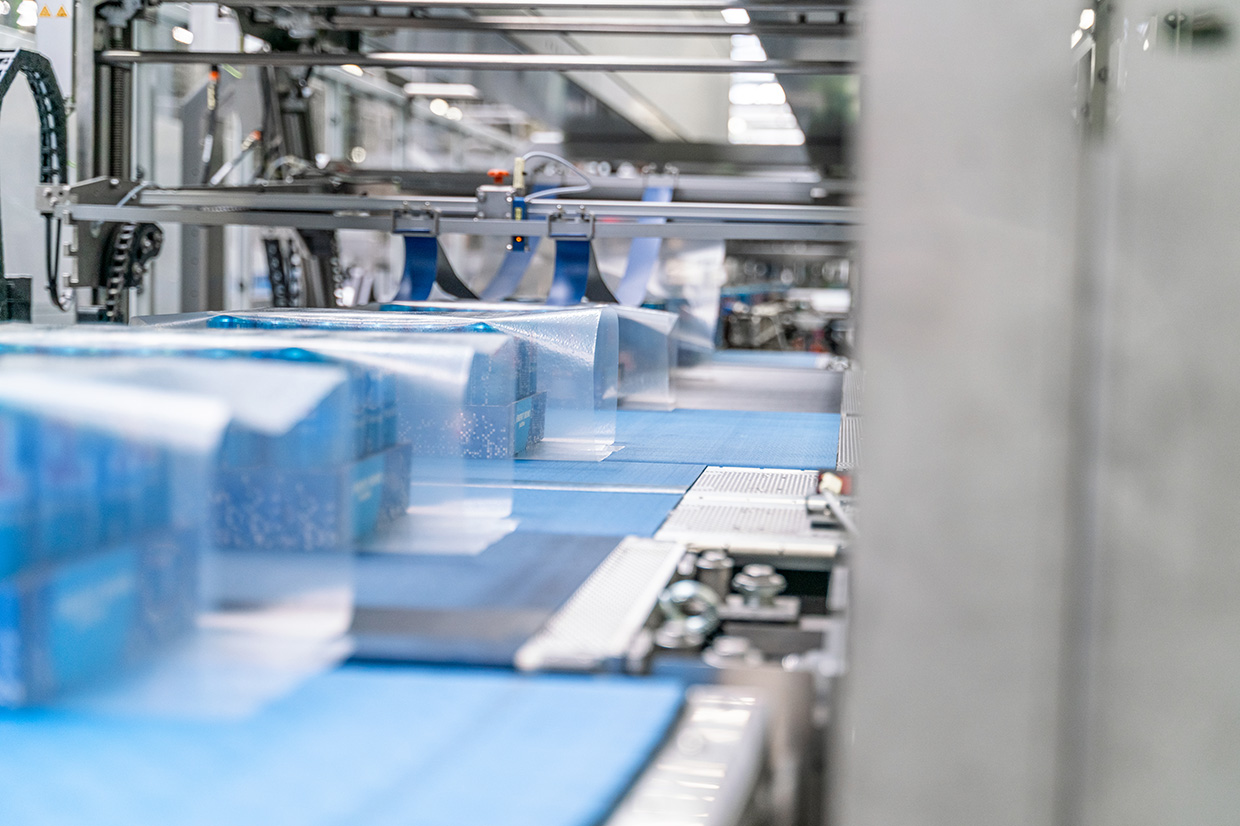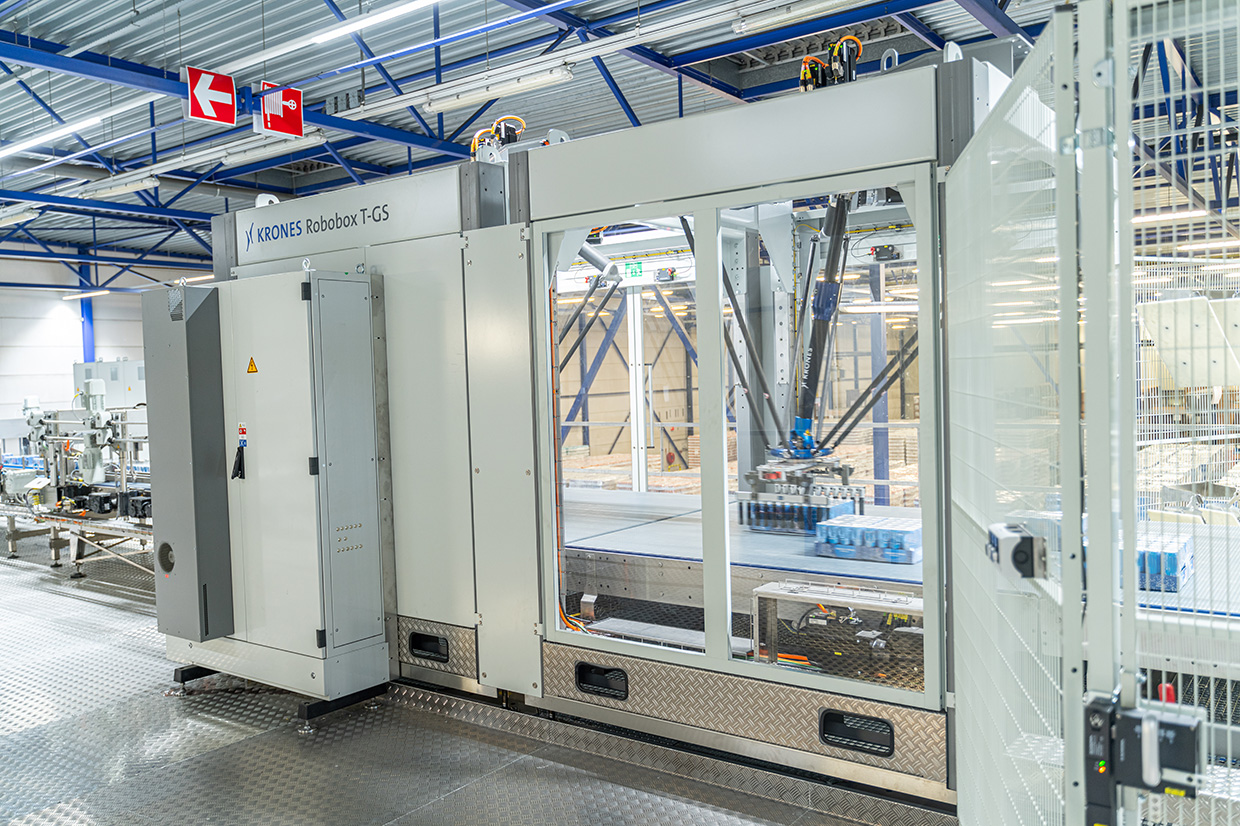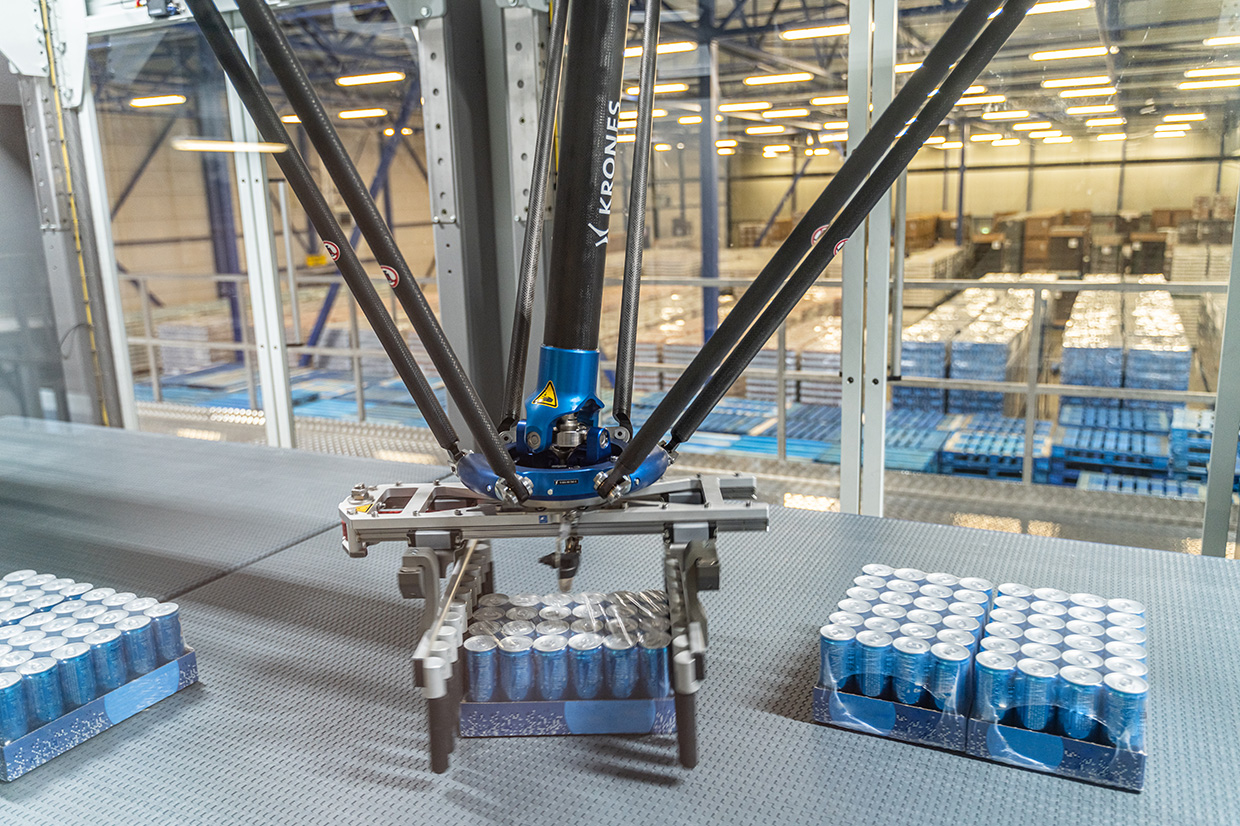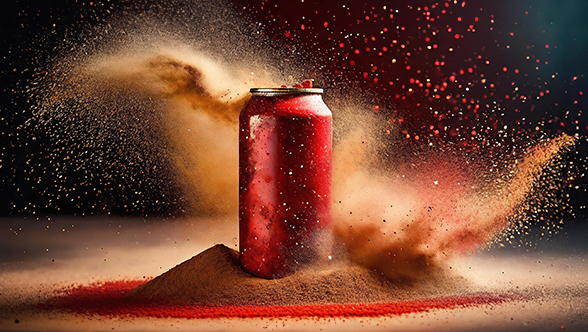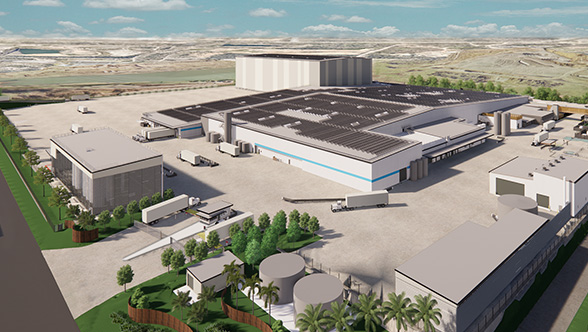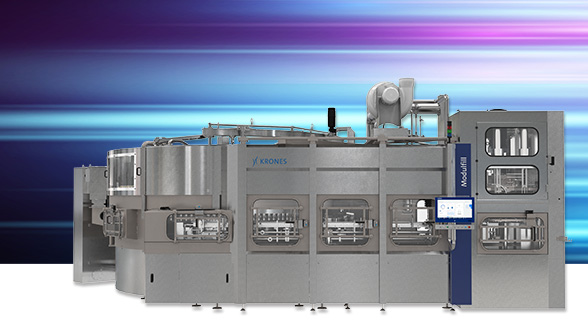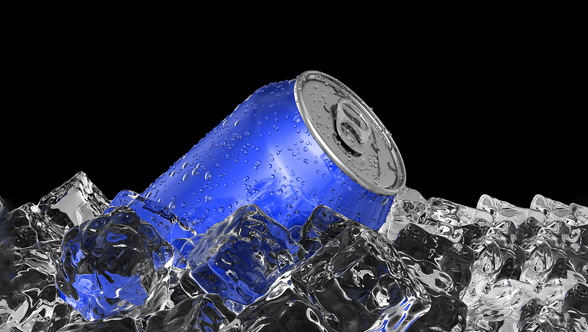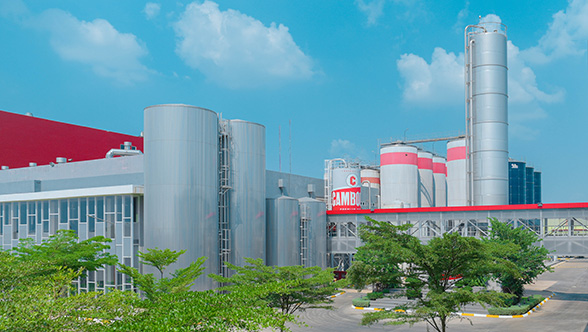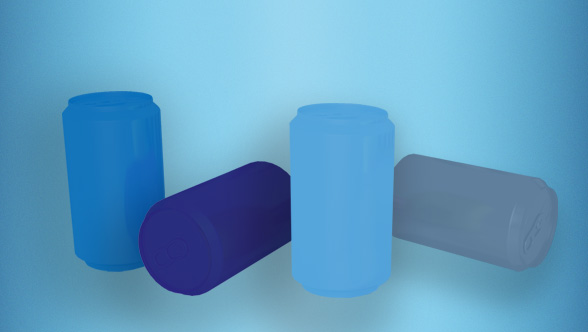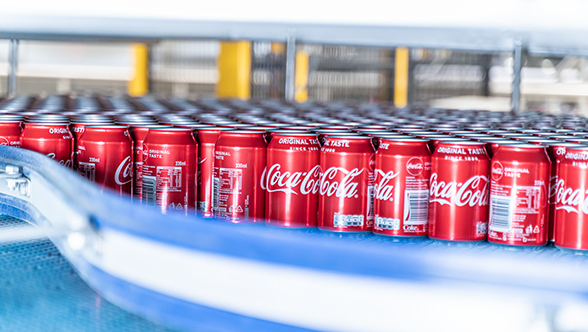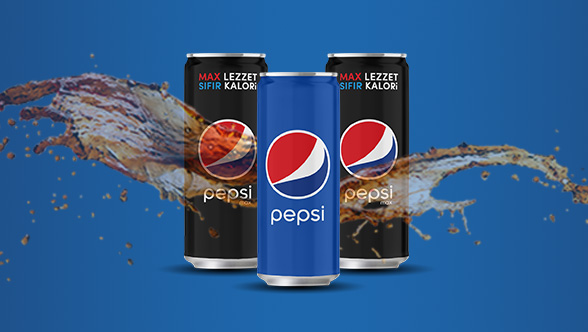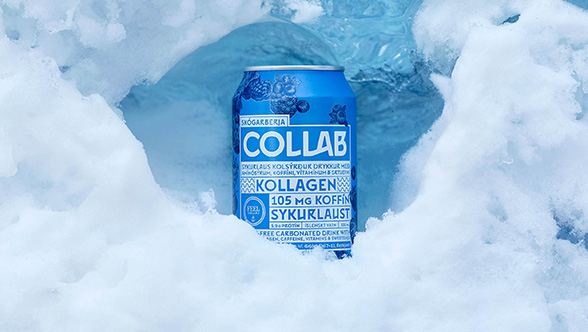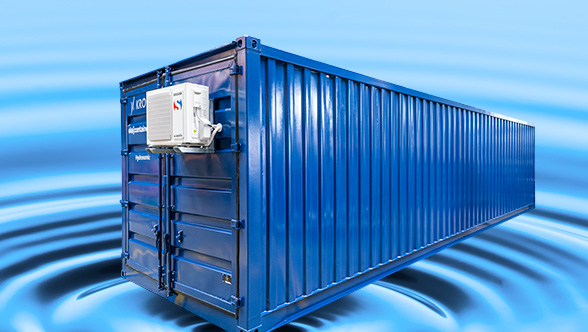Product lifecycles for beverages keep getting shorter. New products come and go, some are immediate flops, others endure – and grow so quickly that their makers or brand owners hardly know how to meet demand. Hard seltzer – carbonated water containing fermented alcohol and fruit flavoring – is an example of the latter. It underwent meteoric growth in the US especially, becoming a billion-dollar market seemingly overnight. By contrast, once-popular alcopops have been all but forgotten. But what beverage makers can track market trends and change over to the latest technology that quickly? This is where co-packers (also known as co-manufacturers and contract fillers) like Konings Drinks come into play.
In the beverage industry, demand for contract filling is growing – much to the benefit of Konings Drinks. The Belgian company has therefore installed yet another turnkey line from Krones: This time, it’s a canning line at the Breda, Netherlands, site. And because the new kit also includes autoclaves, the plant can fill sterilized, sensitive products like plant-based milk alternatives at high speeds for the first time.
What does Konings Drinks do?
The privately held Belgian enterprise produces juices, soft drinks, sensitive drinks, ciders, beer, wine, and spirits for other beverage companies, to their unique formulas, and provides all manner of filling and packaging solutions to meet the customer’s specific needs – be it glass, PET containers, cans, or cartons. Konings also supports its customers in product development and bringing new products to scale.
The company employs a team of around 760 people across six facilities. Three plants are located in Belgium (in Zonhoven and Borgloon), and one each in the Netherlands (Breda), the UK (Boxford), and France (Beaucaire). Konings also presses around 100,000 tons of fruit – mainly apples and pears – per year for cider and juice production.
Business is booming for Konings, with growth consistently in the strong double-digits in recent years. The co-packer is currently filling around a billion units annually and plans to double its output in the next five years with existing and new customers.
Three filling lines in one plant
Konings only recently (in 2015) took over the plant in Breda, Netherlands, from a large fruit-juice and jam producer and has since been updating it. Today, three filling lines are in operation there:
- One for beverage cartons, rated at 8,000 cartons per hour
- One with the PET-AseptBloc D dry aseptic block from Krones, rated at 20,000 containers per hour, which Konings commissioned in 2016
- The new 60,000-cph canning line from Krones, which went online in May 2021
Across all of the company’s plants, this was the 16th order Konings had placed with Krones since 2015, of which six were turnkey lines. In addition to the line in Breda, Konings also installed a nearly identical canning line in Zonhoven, Belgium, which fills primarily CSDs and beer.
Experience with filling sensitive beverages
Up until the commissioning of the new canning line, the plant had specialized in filling vitamin water drinks, juices, and smoothies in beverage cartons and PET containers. And then the decision was made to replace an existing, older-model PET filling line that was no longer operating at optimal capacity with a Krones canning line. There were several reasons for this choice. “On the one hand, demand for cans is growing fast. On the other, we had the space for a new line,” explains Plant Manager Jan Van Reeth. “The most important factor, though, was that we already had experience with filling sensitive beverages here thanks to the aseptic line. We plan to use the canning line to fill chilled coffee drinks, plant-based milk alternatives like oat drinks, and other generally pH-neutral drinks (with a pH value of 7.0). We’ve also invested in three autoclaves for the purpose, which will allow us to sterilize those sensitive beverages. What makes this particular setup special is that we will be able to run the sterilization process at a high speed – 60,000 cans per hour.”
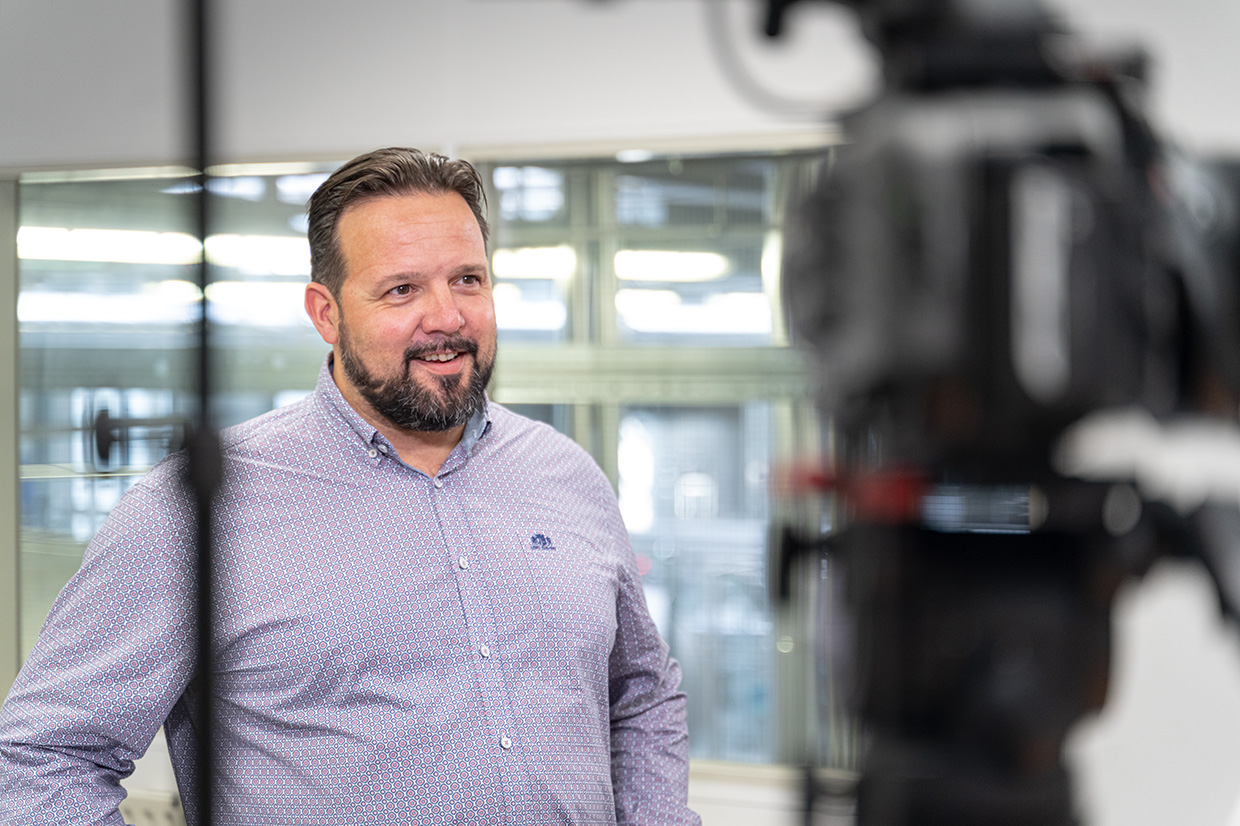
Anything but your standard line
The line is configured to handle slim, sleek, and standard cans in various sizes (250, 330, and 500 milliliters). The empty cans will be supplied on a just-in-time basis for each filling run – either Konings will order them itself, or the customer will deliver them. The empties hall includes a Pressant Universal 1A sweep-off depalletizer with high-level discharge. Then, the cans travel into the filling hall on conveyor belts (fitted with stainless steel covers to prevent dust from entering). While still on the elevated track, the cans are checked by a Cantronic inspector to ensure that they are, in fact, empty and that they are not deformed. In a vacuum bridge, an inkjet printer applies a code to each can, twice for good measure.
The cans are then injected with ionized compressed air in an inclined rinser, turned upside down, and then transported to the lower level. Once below, they are turned right side up again and ready to be filled.
At this point, the product, which has been blended in a Contiflow mixer, is filled into the cans. Just upstream of the filler, a stainless steel sieve is installed in the product line, which is checked manually for residues after each batch. For canning, Konings uses a Modulfill VFS-C with 130 valves. This particular model is also equipped to insert widgets in the can for drinks containing nitrogen like coffee. “To ensure that the widget actually works, the oxygen content in the headspace has to be very low,” explains Quality Manager Dennis Wols. “We accomplish that by injecting nitrogen under the lid of the filled cans and then immediately seaming the cans.”
A Checkmat FM-X inspector subsequently ensures the fill level by x-ray before a twister once again turns the cans on their heads.
Pasteurize, sterilize or by-pass
The new line offers three options for further processing as to whether and how the product is further treated. Which option is chosen depends on the beverage involved:
- The products can be pasteurized, in which case the cans pass through a LinaFlex pasteurizer (organic sodas, for example).
- The products can be sterilized at up to 140 degrees Celsius and under pressure in an autoclave (coffee drinks).
- The cans may bypass the pasteurizer and the sterilization unit (colas, for example).
The autoclaves were also delivered by Krones. Downstream of an accumulation area, another inspector, a Checkmat F-X, checks for underfilled cans. A twister then turns the cans right side up before they pass through a Linadry container dryer.
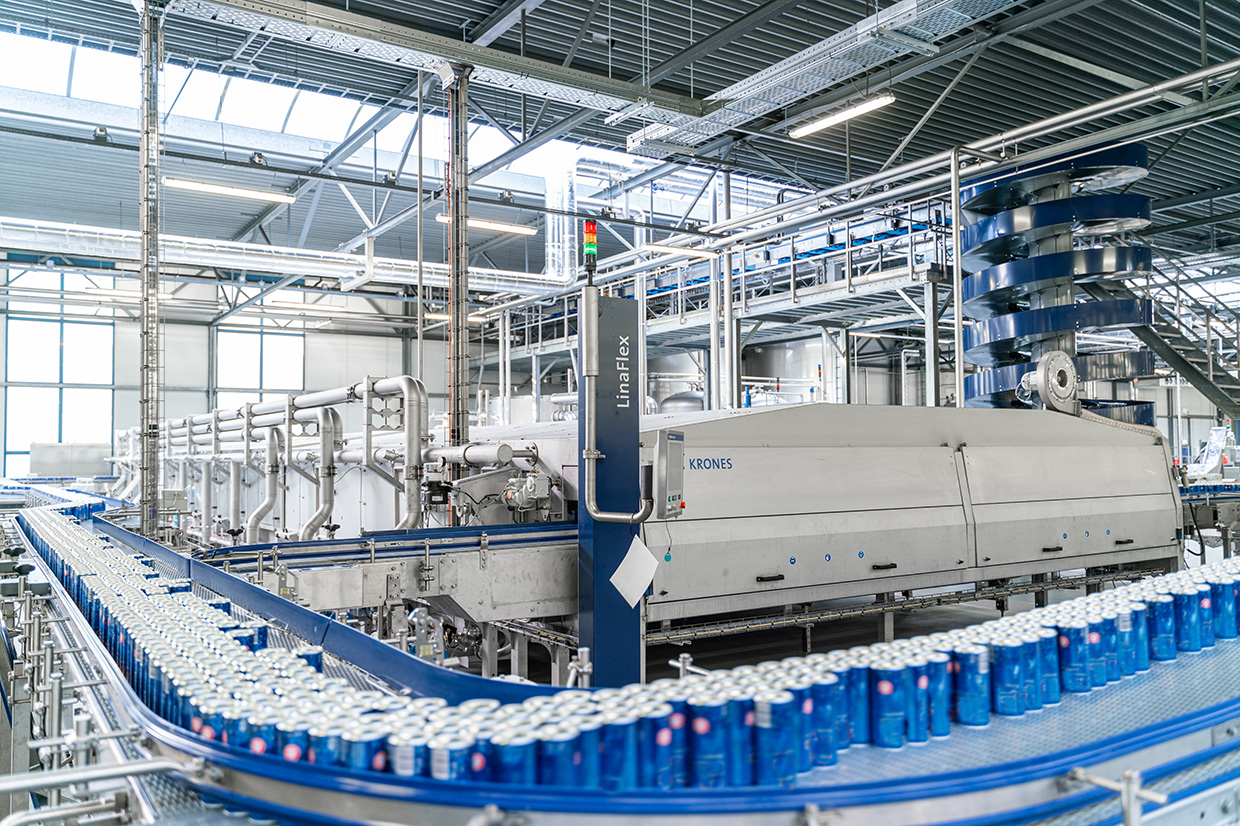
Now the cans are ready for end-of-the-line packaging. For this, Konings has installed a Variopac Pro TFS packer that produces film-wrapped trays. The system is also set up to handle recycled plastic film in the future. Changeovers are semi-automatic – the parameters must be entered manually. These dry-end systems are also among the first in which Krones has made the switch from Siemens S7 automation to Siemens TIA Portal.
A vertical screw conveyor then moves the finished packs up to an elevated track so that they can cross a street by way of a bridge to the hall for filled and packaged products. There, the palletizing area is equipped with a Robobox T-GS grouping station and a Pressant PalBloc 1AJ palletizer. Krones also delivered a VarioClean CIP system to complete the process.
Extremely fast installation
“Together with Krones, we were able to install the canning line in an extremely short timeframe: Only seven months passed from the moment the contract was awarded until the first can was filled. It had to happen fast because we had several customers already lined up and ready to get started filling plant-based drinks,” says Group Project Manager Stijn Van Paemelen, who had been involved in the installation of the PET-AseptBloc line and is now Engineering Group Manager for Konings. “It worked in spite of Covid constraints. Around 100 trucks came in with materials, and we had as many as 50 service engineers from Krones on site. It was all very well organized and ran like a well-oiled machine,” he adds with praise.
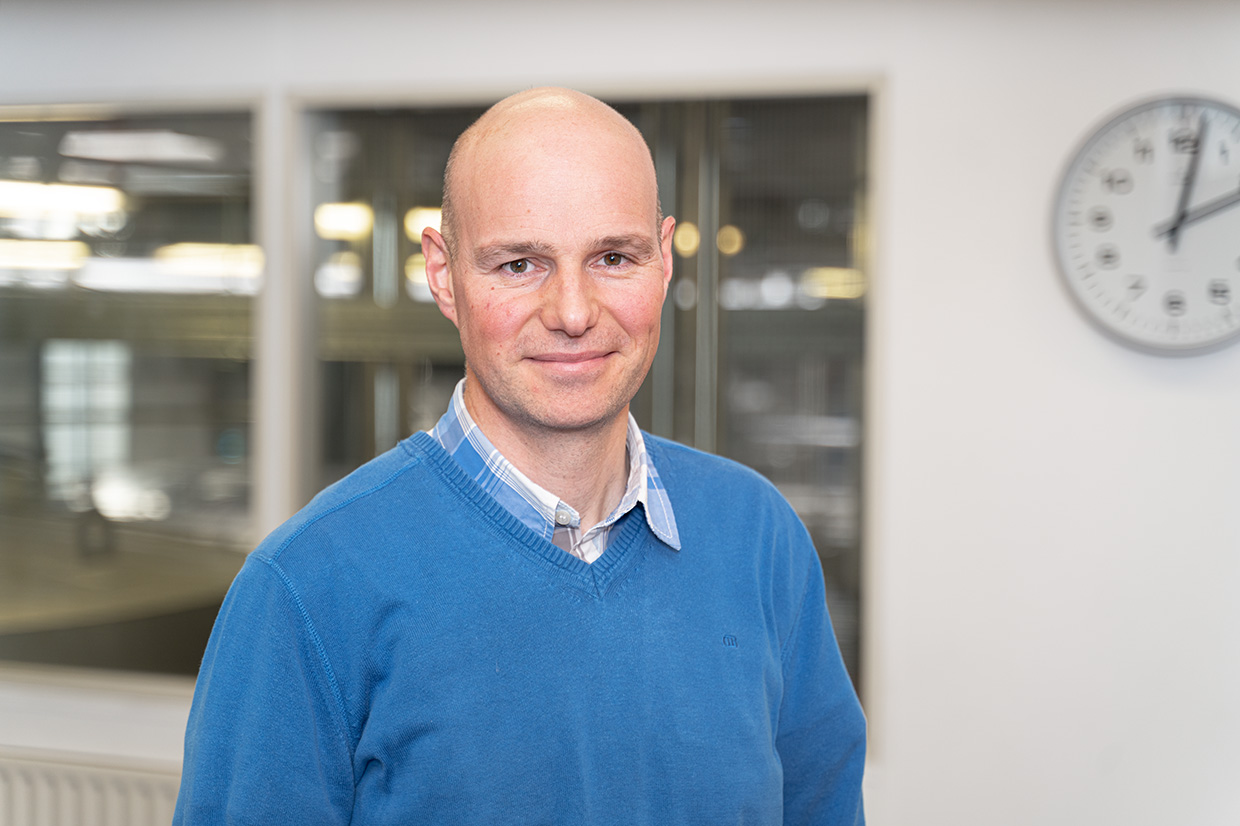
Although the new line is already up and running, Krones’ work is far from done. The SitePilot Line Diagnostics monitoring system still has to be put into place. “As a co-packer, we have to be able to use the line with a high degree of flexibility. That’s also why we chose a 60,000-cph line instead of a 120,000-cph one. And to be able to use it as efficiently as possible, we need the line management system,” stresses Stijn Van Paemelen.
The aim is to be able to process three different products on the line while the line is being changed over: That is, while product 1 is being stacked onto pallets, product 2 would be at the filler and the empty cans for product 3 would just be coming off the pallets at the start of the line. This is important because Konings processes batches of various sizes ranging from just 80,000 or so units to several million cans. Right now, the line is running in two shifts and changeovers are needed three to ten times per week.
For Stijn Van Paemelen, traceability is just as important as flexibility. And thanks to the fully automated coding of primary and secondary packaging, the new line also meets this requirement.
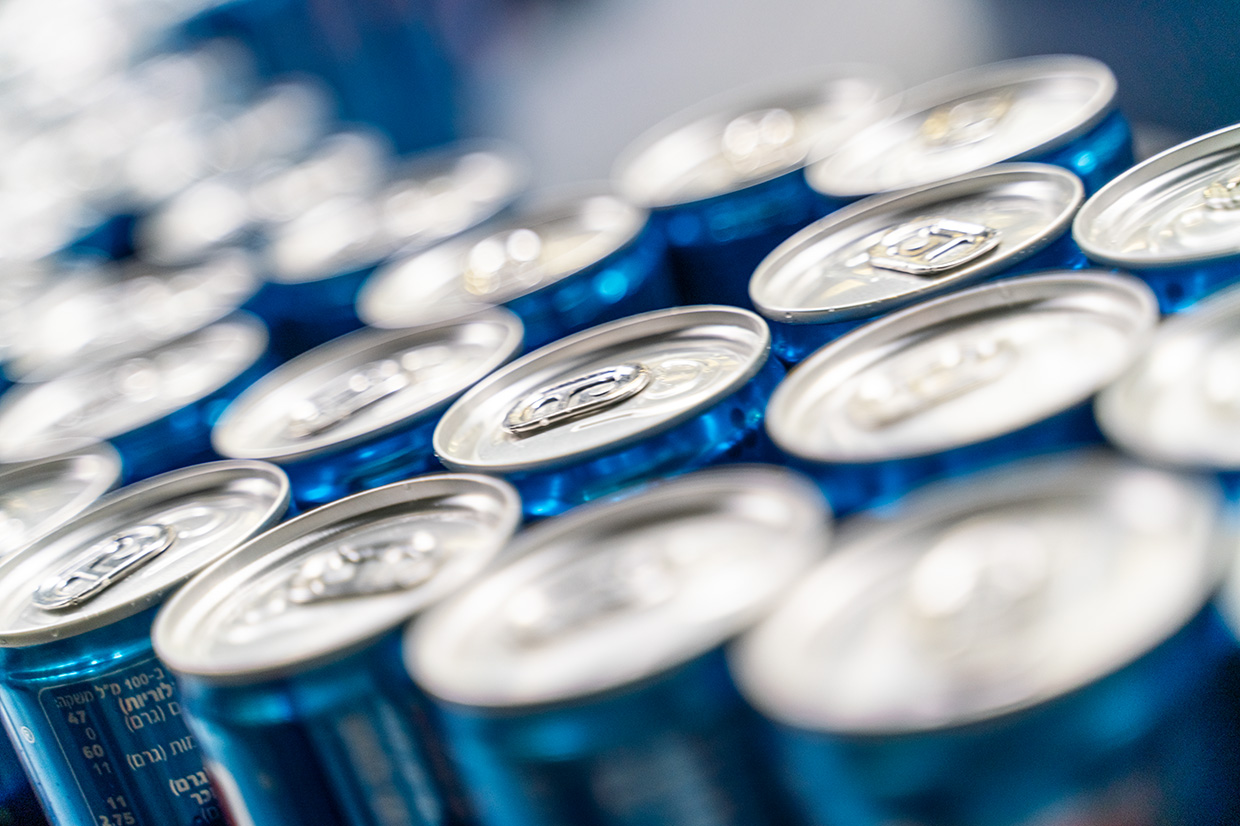
Heavily invested in filling technology for coffee drinks
“Brand owners can’t be constantly investing in new filling lines since they have to take plant overheads into consideration. So they prefer to contract the filling out to professional co-manufacturers like Konings. The big advantage we can offer our customers is the flexibility to try out new products alongside their existing portfolios. We also have a wealth of expertise in working with oxygen-sensitive beverages,” says Plant Manager Jan Van Reeth. “We’ve invested heavily in filling technology for coffee drinks and hope that this market will grow. We benefit from the fact that we can package products for many customers because,” he is convinced, “the investment in this new processing capacity would simply be too risky for a single brand owner in this segment.”

